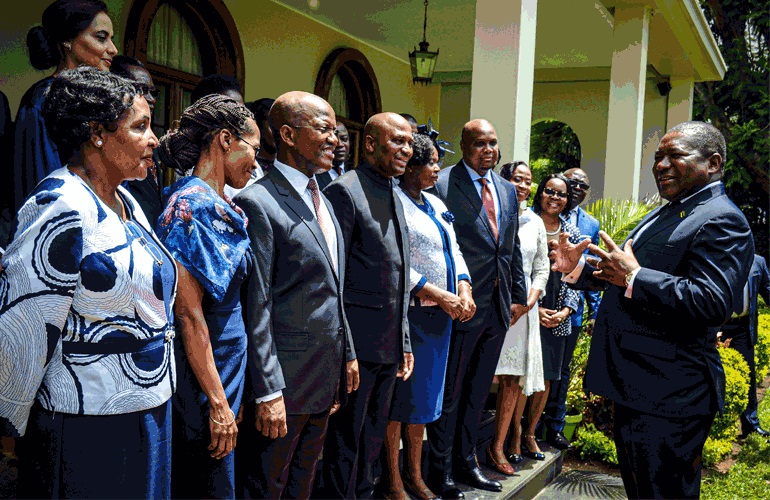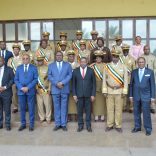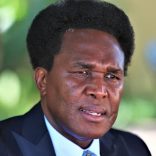Maputo city community leaders meet Chief Charumbira, aspire for parliamentary representation ...
Mozambique: Nyusi calls for careful management of public assets – AIM report

Photo: Notícias
Mozambican President Filipe Nyusi on Friday demanded that his newly-formed government should ensure careful and transparent management of public assets.
Speaking at the Maputo ceremony where he swore into office the Secretaries of State for the ten provinces plus Maputo City, he insisted on a more vigorous struggle against corruption. “You must be able to distinguish sharply between public and private interests, avoiding conflicts of interest at all times”, he declared.
“Don’t have favourite groups or persons”, he told them. “And be aware that you will be tempted. You are on the ground where things happen, and you should reject all compromises and practices that are damaging to professionalism”.
Nyusi recognised that, initially, there could be conflicts arising from the apparently overlapping tasks between the provincial governors and the secretaries of state. “It is your responsibility to seek the best ways of overcoming this type of constraint”, he said. “We have a clear and common goal, which is to promote social justice and the well-being of Mozambicans”.
He added that the secretaries of state must know in detail not only their own attributes granted by the laws on decentralisation, but also those of the other bodies in the province.
They should always bear in mind, he added, that the purpose of decentralising the public administration was to encourage the participation of citizens in seeking solutions to their own problems. The Secretaries of State should ensure “the creative implementation of the norms”.
“I recommend that you understand what it means to represent the State in the province, and your relationship with the decentralised bodies and with the district governments”, he urged. “You must also know how to coordinate with the bodies of the central state, because you represent the sovereignty and the programmes of our unitary state”.
Under the new legislation, there are two sets of authorities in each province. One is the provincial governor, answerable to the Provincial Assembly. Both the Assembly and the governor are directly elected bodies.
The second is the Secretary of State, appointed by the President of the Republic, and who represents the President and the central government in the province. The Secretary of State exercises the functions that are exclusive to the State and to state sovereignty.
He or she heads the “Council of services of State provincial representation”, which also includes the directors of the provincial services of the State, and delegates who represent public institutions in the province.
Anything to do with state sovereignty is covered by the secretaries of state – including defence and security, public order, supervision of the borders, natural resources, mining and energy.
Reducing the authority of the provincial governors still further is the fact that their writ does not run in the municipalities – which now cover most of the country’s urban areas. The provincial governors cannot override the municipal councils which answer to the elected municipal assemblies.
Edson Macuacua was chairperson of the Legal and Constitutional Affairs Commission in the outgoing parliament, and was one of the architects of the package of laws on decentralisation. Nyusi has now appointed him Secretary of State for the central province of Manica.
After the swearing-in ceremony, he told reporters he was going with an open mind to implement decentralization on the ground.
“We shall work for integrity in the public administration”, he promised, “and we shall operate so that the Secretary of State contributes to the development of the province”.












Leave a Reply
Be the First to Comment!
You must be logged in to post a comment.
You must be logged in to post a comment.